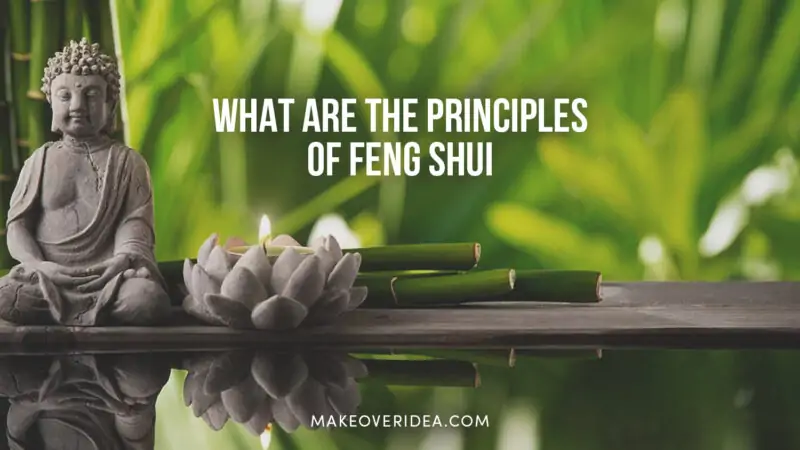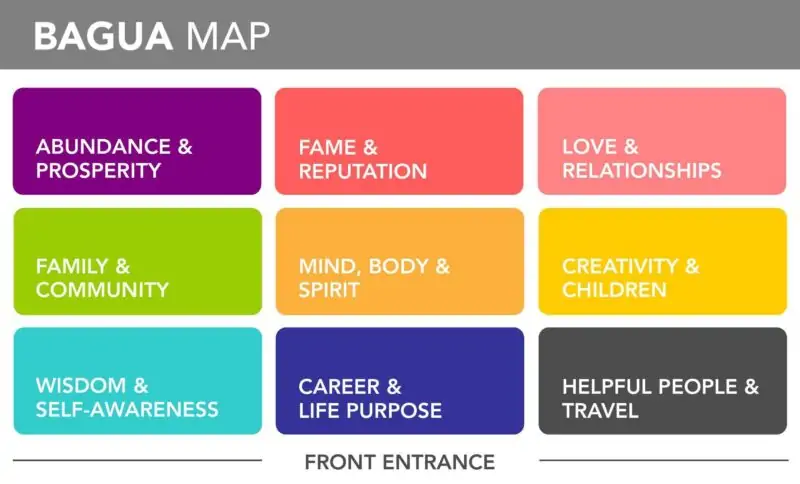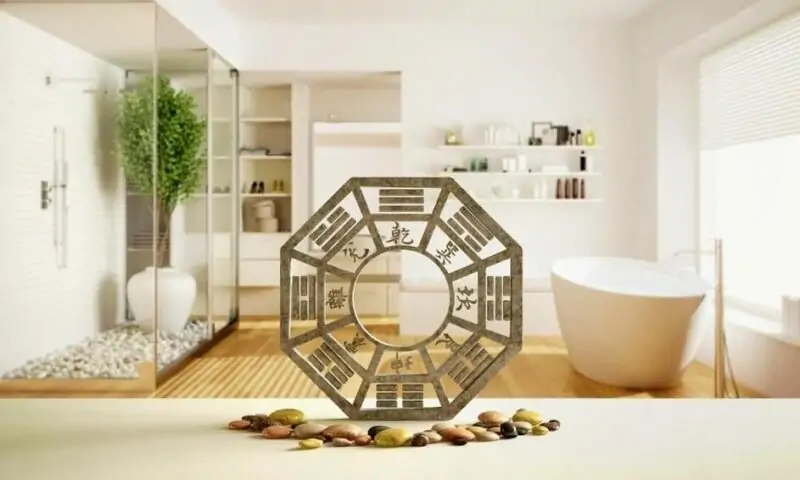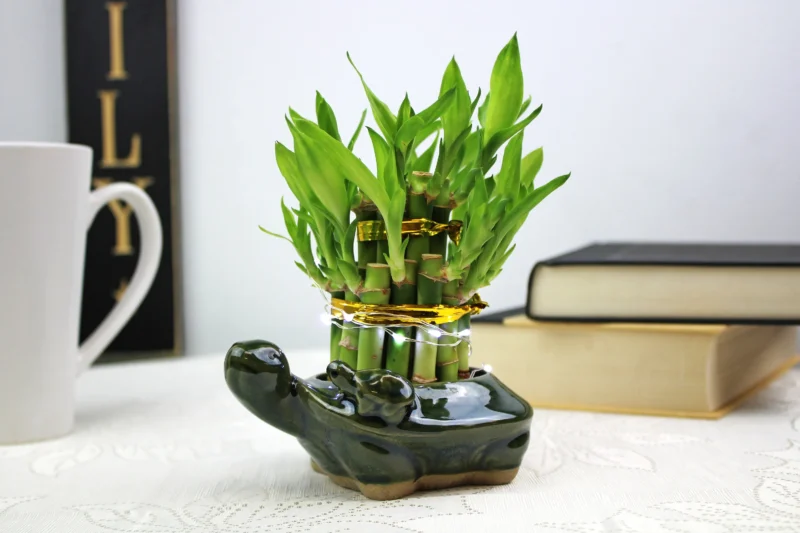Principles of Feng Shui: Achieving Good Energy in Your Home Design

Have you heard the term “Feng Shui” but weren’t sure what it meant? Feng Shui is an ancient Chinese practice rooted in Taoism and focuses on creating balance and harmony in your environment. By using certain principles, you can improve the energy flow of your home or office space, leading to a more mindful and peaceful home.
Concepts of Feng Shui: The Five Elements
What is Feng Shui, and How Does it Work?
Feng Shui is an ancient Chinese practice that focuses on creating balance and harmony in your environment. By using certain principles, you can improve the energy flow of your home or office space, leading to a more mindful and peaceful home. Feng Shui translates to “the way of wind and water,” representing that everything in life is connected through energy. The goal of feng shui is to establish harmony between yourself and your environment by improving the flow of this energy, known as chi.
Understanding Chi: The Life Force Energy
Chi is the life force energy that flows through all living things. It’s believed that when chi flows freely through your body and environment, you will experience good health, happiness, prosperity, success, and peace.
Yin and Yang: Balancing Opposing Forces
In feng shui philosophy, yin represents female energies like softness, darkness, and coolness while yang symbolizes male forces like brightness, warmness, etc.; balancing these opposing forces creates harmony within our surroundings, thus having a positive effect on us emotionally & physically.
The Five Elements: Incorporating Wood, Fire, Earth, Metal, Water

The five elements are wood, fire, earth, metal, and water, representing nature’s core components which we incorporate into our homes to achieve natural balance with its surrounding atmosphere.
Applying Principles of Feng Shui in Your Home or Office
By arranging the basic principles of feng shui into your interior design or lifestyle habits, you can use the following:
The Bagua: Mapping Energy in Your Environment

The arrangement of the Bagua grid trigrams and the Bagua square zones appeared over two thousand years ago.
According to the Bagua map over a floor plan, the eight areas help identify different aspects of human life, such as wealth, relationships, career, family, creativity, education, knowledge, reputation, and health.
Even using tips for beginners, you can find a way to improve the spiritual content of each aspect of your life. But the transformation of your space will be perfect if you involve a certified feng shui consultant.
The Command Position: Ideal Placement for Important Items
The commanding position is the spot in a room where you can see the door and not be directly in line with it. This creates a feeling of security and comfort, which makes it an ideal placement for essential items like your desk, bed, or stove.
Clearing Clutter: Promoting Positive Energy
Clutter blocks the energetic waves and hampers growth as per Feng Shui practices; hence clearing clutter from every room helps promote positive energy flow throughout our homes.
Using Colors: Enhancing the Energy of a Space
Colors play a significant role according to Chinese culture. They are used effectively while designing home interiors or office spaces to enhance specific areas’ energy – such as calming blue tones that improve concentration. At the same time, yellows brighten up enthusiasm, and green shades create a mindful and peaceful mood.
Natural Elements: Balancing Energy with the Environment
Incorporating natural components like plants, water bodies, Chinese words, or wood element patterns create balance within our environment by bringing us closer to nature’s essence.

Air and Light Circulation: Creating a Healthy Atmosphere
Having enough air circulation and sufficient light brightens up any space creating good health vibes all around one’s surroundings, promoting positivity among its residents, also improving their mood significantly
Setting Intentions for Specific Life Aspects
Feng shui principles can be applied according to life aspects:
Feng Shui for Wealth: Inviting Abundance and Prosperity
Using feng shui techniques such as placing lucky bamboo plants at certain spots helps increase wealth stability score, further inviting abundance into lives.

Feng Shui for Relationships: Enhancing Love and Connection
Placing romantic symbols (such as heart-shaped stones) in southwest corners improves love connections between people residing there. In contrast, photos with happy memories together add personal value to family bonds, strengthening more profound relationships on spirit long-term basis.
Feng Shui for Career: Boosting Professional Success
Feng Shui tips such as placing an aquarium in the north end of your office or workspace help increase career growth opportunities; fish (Goldfish) represents wealth and abundance, and flowing water symbolizes progress.
Feng Shui for Health: Improving Physical and Emotional Well-being
A way to bring relaxation to the spaces where you spend most of your time is to use natural elements like plants (Jade/ Peace Lily), crystals, and sea salt lamps. It creates a calming environment that helps reduce stress among residents, thus promoting better emotional health. A feng shui expert will help you select such details.
Ordinary Feng Shui Mistakes to Avoid
Over-Decorating: Knowing When to Stop
Overdoing home decor can lead to chaos that blocks energy flow; hence, avoiding over-decorating one’s home space and balancing simplicity and decorative creativity is vital.
Ignoring the Basic Principles: The Importance of Clutter Clearing
Ignoring basic feng shui principles like keeping doorways clear and having no clutter blocks the healthy circulation of energy within our homes. Hence implementing these basics is crucial before progressing with advanced techniques.
Going Against Personal Style: Finding a Balance
Feng shui practices need not bind you entirely according to traditional Chinese culture; instead, they should complement personal style preferences, creating harmony along the way – optimally finding a perfect balance between both worlds.
Following Strict Rules: Being Flexible
While applying feng shui design concepts, it’s also important to be flexible enough regarding each situation separately rather than following strict rules to optimize better outcomes.
Conclusion
Overall, incorporating the traditional Chinese practice of feng shui into your life can have tremendous benefits in many aspects ranging from physical health to improved relationships or financial stability. It’s a good idea to embrace this ancient Chinese practice and use its principles to achieve harmony & balance in our surroundings, which will positively impact and bring about transformational change in all of us!